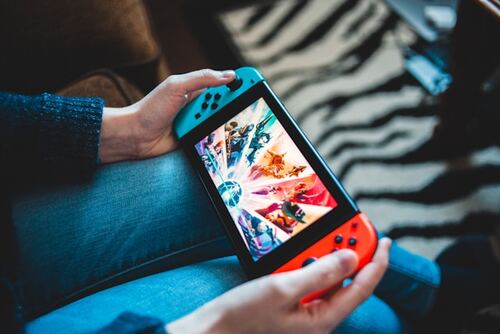
Online games have dramatically transformed the gaming landscape, influencing how we interact with games such as slot online game, each other, and technology. This evolution has reshaped the gaming experience in various ways, from social interactions to technological advancements. Here’s a look at how online games are changing the way we play:
1. Enhanced Social Interaction
- Global Connectivity: Online games connect players from around the world, breaking down geographical barriers and fostering a global gaming community. Players can team up, compete, and communicate with others regardless of their location.
- Social Platforms: Many online games integrate social features such as friends lists, chat systems, and in-game voice communication. These features enhance the social experience, allowing players to build and maintain relationships with others.
2. Evolving Gameplay Mechanics
- Persistent Worlds: Online games often feature persistent worlds that continue to evolve even when players are not logged in. This creates a dynamic and ever-changing environment, influencing gameplay and player strategies.
- Live Events and Updates: Developers frequently introduce live events, seasonal content, and updates to keep players engaged. These events can offer new challenges, rewards, and experiences, ensuring that the game remains fresh and exciting.
3. Increased Collaboration and Teamwork
- Cooperative Gameplay: Online games often emphasize cooperative gameplay, requiring players to work together to achieve common goals. This fosters teamwork and collaboration, whether in PvE (player vs. environment) or PvP (player vs. player) settings.
- Guilds and Clans: Many games feature guilds or clans that allow players to form communities, coordinate activities, and support each other. These groups enhance the social aspect of gaming and provide opportunities for organized gameplay.
4. New Forms of Competition
- Esports: The rise of esports has transformed competitive gaming into a professional sport. Players can compete in organized tournaments with significant prize pools, and fans can watch and follow competitive events just like traditional sports.
- Ranking Systems: Online games often feature ranking systems that track player performance and skill levels. This competitive element motivates players to improve and engage in ranked matches or leagues.
5. Innovative Monetization Models
- Microtransactions and In-Game Purchases: Online games frequently use microtransactions and in-game purchases to generate revenue. This model allows players to buy cosmetic items, boosts, or additional content, often without affecting gameplay balance.
- Subscription Services: Some online games offer subscription-based models, providing players with access to exclusive content, features, or benefits in exchange for a recurring fee.
6. Integration of Streaming and Content Creation
- Game Streaming: The rise of game streaming platforms like Twitch and YouTube Gaming has transformed how players share and experience games. Streamers can broadcast their gameplay to audiences, interact with viewers, and build communities around their content.
- Content Creation: Online games often feature tools and features that allow players to create and share their own content, such as custom maps, mods, or in-game creations. This encourages creativity and expands the game’s content.
7. Advancements in Technology
- Cloud Gaming: Cloud gaming services like Google Stadia and Xbox Cloud Gaming allow players to stream games directly to their devices without needing high-end hardware. This technology makes gaming more accessible and flexible.
- Virtual Reality (VR) and Augmented Reality (AR): VR and AR technologies are creating new ways to experience online games. VR offers immersive experiences with full 3D environments, while AR blends digital elements with the real world.
8. Impact on Lifestyle and Well-being
- Mental Health and Social Connections: Online games can provide a sense of community and support, offering an outlet for social interaction and stress relief. However, it’s important to balance gaming with other aspects of life to avoid negative impacts on mental health.
- Time Management: The engaging nature of online games can lead to increased playtime. Effective time management strategies are essential to ensure that gaming does not interfere with other responsibilities.
9. Cultural Influence
- Gaming Culture: Online games have contributed to the growth of gaming culture, influencing trends, language, and social behaviors. Memes, fan art, and gaming references have become integral parts of popular culture.
- Storytelling and Diversity: Online games often feature diverse narratives and characters, reflecting a wider range of experiences and perspectives. This diversity enriches storytelling and broadens the appeal of games to different audiences.
Conclusion
Online games are revolutionizing the gaming experience by enhancing social interaction, introducing innovative gameplay like poker online games mechanics, and integrating advanced technologies. As the online gaming landscape continues to evolve, these changes will shape how we play, connect, and engage with games, offering new opportunities and experiences for players worldwide.





